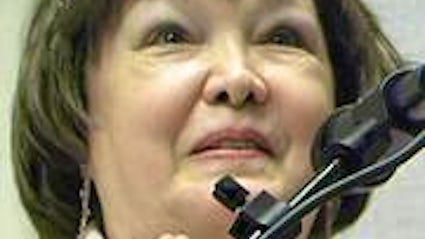
Leilani Muir (1944- ) was born in Calgary, Alberta, into a poor family that moved frequently around small towns throughout Alberta. Abused by her mother, Muir was institutionalized at the Provincial Training School (PTS) in Red Deer at the age of 11, without any diagnostic testing and purely based on false information provided by her mother. After two years of living at the PTS, Muir was given an intelligence quotient (IQ) test, where she scored below 70, and was diagnosed as a "moron". This test score contributed to the decision made by the Eugenics Board after a brief interview with Muir, and she was approved for sterilization, alongside numerous other PTS residents. At the time, she was lied to and told that she was only having her appendix out. Subsequent IQ tests administered in her adulthood revealed that Muir actually has a normal IQ.
After leaving the Provincial Training School, Muir worked many positions, including as a babysitter. When she was unable to conceive a child in her first marriage, she found out she had been sterilized, and that the operation could not be reversed. Muir was also unable to adopt because of her time in an institution. In 1995, Muir launched a landmark lawsuit against the Alberta government for wrongful sterilization. The case was very important, as it led to an apology on behalf of the Alberta government, and compensation being paid to hundreds of other wrongfully sterilized persons.
Muir's story was the topic of the documentary by the National Film Board of Canada, The Sterilization of Leilani Muir, and the Edmonton Fringe festival play, The Invisible Child. Muir continues to advocate for the rights of children, and to speak in public forums about her experiences. Muir has a great love of animals as well. The CBC radio show, The Currents also named her a Game Changer. Her autobiography, A Whisper Past was released in 2014.
-Colette Leung
Muir, L. (2014). A Whisper Past. Victoria, BC : FriesenPress, Inc.











